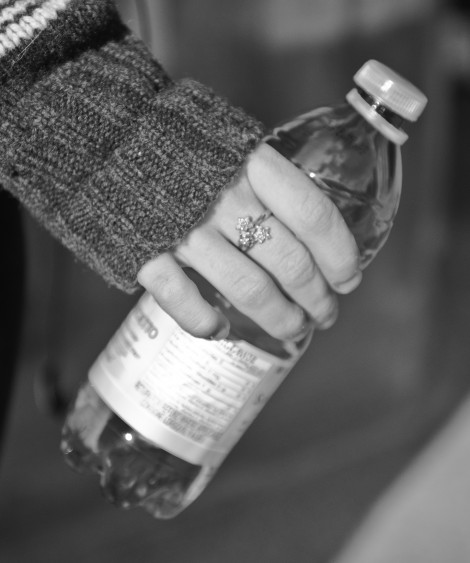University of Toronto’s tri-campus ban on bottled water has prompted a backlash from students.
Officially carried out this fall, the ban ensures that water is no longer sold at campus cafés, libraries, and other U of T buildings.
The water ban was initiated by the student organization, Public Water Initiative (PWI), that lobbies for public accessibility to drinking water through social equity. “The decision to ban the sale of bottled water on campus is a huge step forward in developing social and environmental justice on campus,” said Corey Scott, UTSU’s VP Internal and Services.
In the last few years, U of T Food Services has worked in collaboration with PWI for various projects in an effort to achieve this goal.
“[We’ve been working] towards creating a climate where we could finally remove bottled water from the shelves without too much resistance from food providers, or the community,” said Anne MacDonald, director of ancillary services at U of T.

Lack of bottled water has forced students to buy water off-campus.
Additional support has come from the UTSU Sustainability Commission, which has been providing students with literature highlighting harmful effects of bottled water on the environment and individual health. It describes the environmental impact of improperly recycled bottles and states that public water is less damaging to one’s health than water packaged and sold by private companies.
The union has also been distributing reusable water bottles that are free of Bisphenol A. However, many students are responding negatively to the ban. They argue that there was no adequate transition period that enabled them to adjust to an absence of bottled water on campus.
Some students criticized U of T for not installing enough water fountains and water refilling stations to accommodate the lack of bottled water.
Third-year student Supriya Joshi spoke against the inefficiency of the university’s decision. “You have to ensure the necessary accommodations before you get rid of water. It’s like writing an essay before you do the research,” she said.
“I feel that it’s a decision that was made as a feel-good project because it has made no difference. There’s not less plastic, there’s just less water,” she continued.
Joshi described the inconvenience of travelling to off-campus locations for bottled water and resorting to bottled juices from the university’s vending machines when thirsty.
Coincidentally, she wasn’t alone in her disapproval of the new bottled water ban. A Facebook group entitled “Bring Back Bottled Water at U of T” has emerged in response to the University’s actions.
The Facebook group petitions to bring back the students’ right to choose whether or not they want to buy bottled water.
It highlights the inconvenience to students — again referring to a lack of accommodation — and questions the reasoning behind the university’s decision. The group also argues that students can still purchase other bottled drinks and canned beverages that pose equal health and environmental risks as they too contain BPA.
Although U of T is to remain a bottled water free zone, UTSU is lobbying for the installation of additional accommodations.
“The University needs to ensure that there is a plan to ensure public water infrastructure which includes developing public and accessible water fountains and refilling stations,” said Scott. “We will continue to push for establishing more fountains and ensure that people can get water for free from cafeterias, like is currently possible at Hart House, [and we will work] with administration to ensure that students have access to water.”

